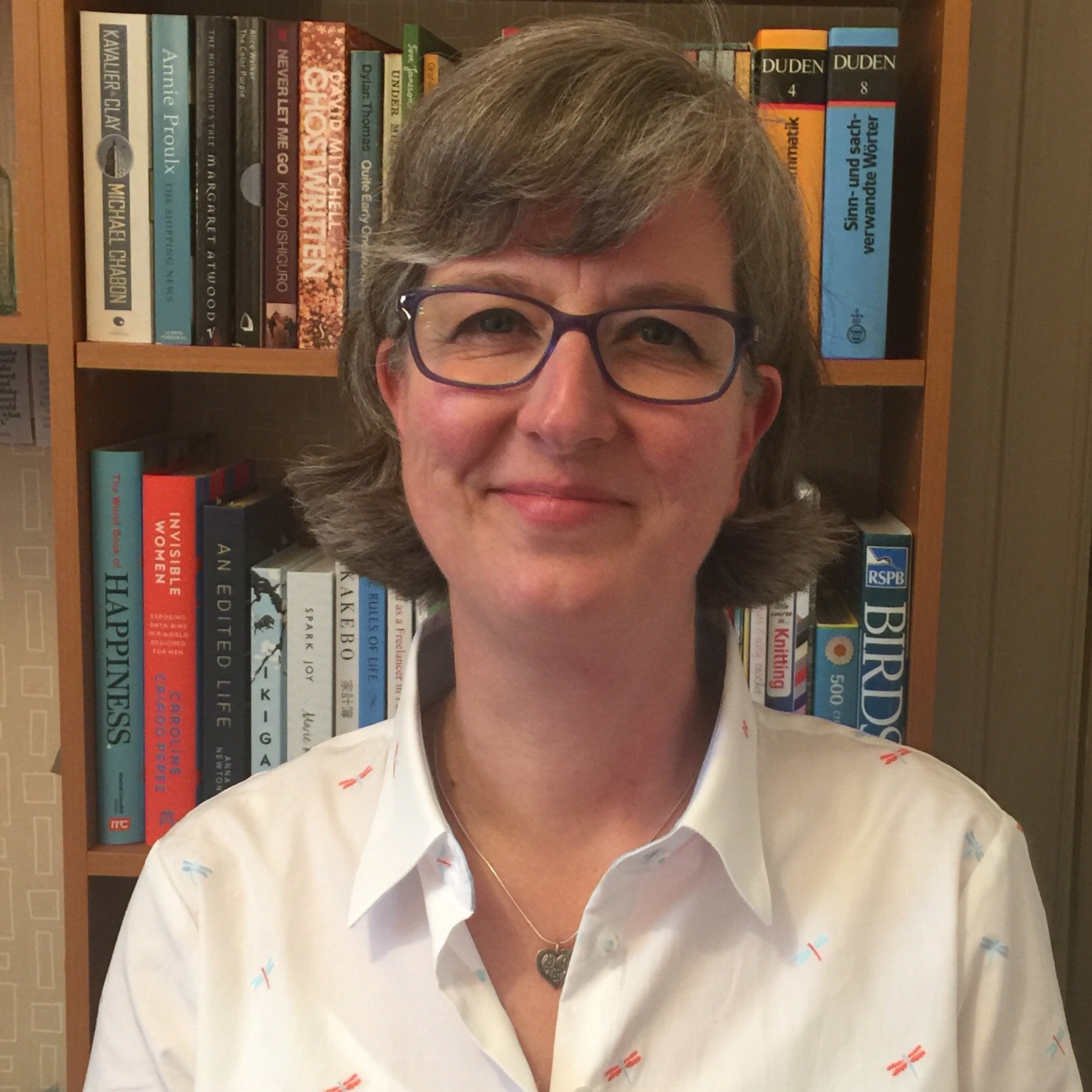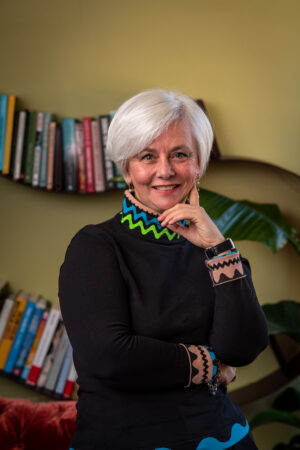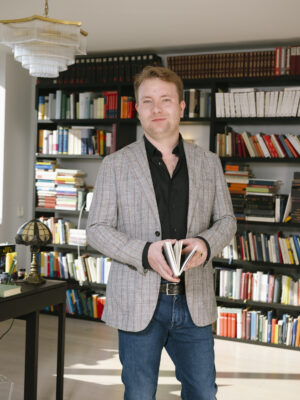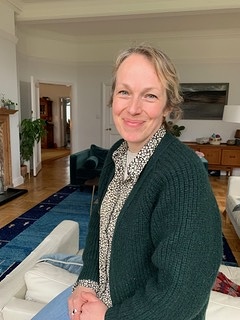We sat down with Dr Kat Hall to map the lay of the land in German crime fiction for our article on the German Krimi. We also found out a bit more about what Kat’s been working on herself, and how to let readers play detective…
Hello, Kat! You’re something of an expert on all things German crime fiction. How did you get into it?
I’ve always been a crime fan, and like many people I started off with Agatha Christie as a teenager. Then there was a little detour while I studied German at university. The syllabus was mostly highbrow stuff like Thomas Mann and Günter Grass – and post-1945 literature was actually the area I worked on for a long time as a researcher. But after a few years I thought, you know what, I fancy a bit of fun! So let’s start looking into the Krimi. A German friend of mine was tidying our stockroom and came across a copy of Bernhard Schlink’s crime novel Selbs Justiz – translated by Rebecca Morrison as Self’s Punishment. It delves into a secret from the Nazi past – and because I’d been working on Grass, and a lot of that had to do with representations of the Nazi past, I sort of segued into how guilt and justice are represented in Krimis.
Later I edited Crime Fiction in German, a volume looking at different aspects of the Krimi – such as the Frauenkrimi, historical crime and regional crime – which was really rewarding.
I left Swansea Uni to become a freelance editor and translator in 2016. And now, much to my delight, I find myself translating crime fiction! At the moment I’m translating Ferdinand von Schirach’s Strafe (Punishment) and Kaffee und Zigaretten for John Murray Press. The latter isn’t pure crime, more a mixture of fiction and essays, but Strafe is a collection of crime short stories. Von Schirach has a reputation for being quite serious, but it’s surprisingly funny – in rather a dark way.
It’s been a nice journey, from writing on crime fiction to translating it – and seeing everything from the other side!
What have you been working on during lockdown?
I was mainly working on Kaffee und Zigaretten, and it actually gave me time to look beyond the text a bit. For example, von Schirach talks about particular films which I then watched, like Michael Haneke’s Happy End. Some of the film’s dialogue is quoted in the book, but it’s given in German translation – so I went back to the French original and checked what the English subtitlers had done to make sure I’d captured exactly the right sense.
What are the specific challenges while translating crime fiction?
Crime is highly plot-driven and you’ve got clues in the narrative that are often very carefully worded, so you really have to pay attention to what those clues are or what the resonance of a particular phrase might be – there may be a throwaway observation that turns out to be central to the plot. You can’t give anything away that shouldn’t be given away, but equally you need the clue to lie there in such a way that people can come back to it and go, “Oh! That was the key to the whole thing…” So you have to pay close attention to the language, the structure of the plot. You need to be very precise and you need to be an astute reader, because you’ve got to spot those clues in the first place. It helps if you’ve read a lot of crime fiction because your antennae are already up!
I think that’s the main thing with crime fiction: you have to make sure you’re delivering the same experience to the English reader that the original German reader would have had, in terms of the reader being a detective who’s trying to figure things out.
I think it was Val McDermid who said that of all authors, crime writers are the most well-adjusted, because they get everything out in their books. Does the same go for translators?
Oh, absolutely. Crime’s very cathartic, isn’t it? According to her, romance writers are the worst!
I feel we can’t talk about German crime fiction without talking about the TV series Tatort. Are you a fan?
Definitely. It’s a German institution that’s been going for over fifty years and is very influential. You know that model of following different investigative teams in different parts of the country? Think CSI Miami, CSI New York… Where did they get that idea? I reckon it was Tatort… And isn’t it amazing that people drop everything to watch it?!
The last time I was in Berlin, I dragged the translator Katy Derbyshire along to a pub for a Sunday evening showing. We sat in this special little wood-panelled room, and people ate and there were candles on the tables – all part of the weekly Tatort ritual. It was like all my Christmases had come at once.
Find out more about Kat’s work at https://peabodyink.com/
Kat’s blog Mrs Peabody Investigates explores international crime fiction, TV and film.
Kat contributed to our overview of crime fiction from Germany here .
About New Books in German
Find out more about our work to promote German language literature for translation into English
Find Funding
Discover more about the guaranteed support for translation into English
News
Delve into articles and interviews about books, publishers, translators, authors and the German language literary field.









